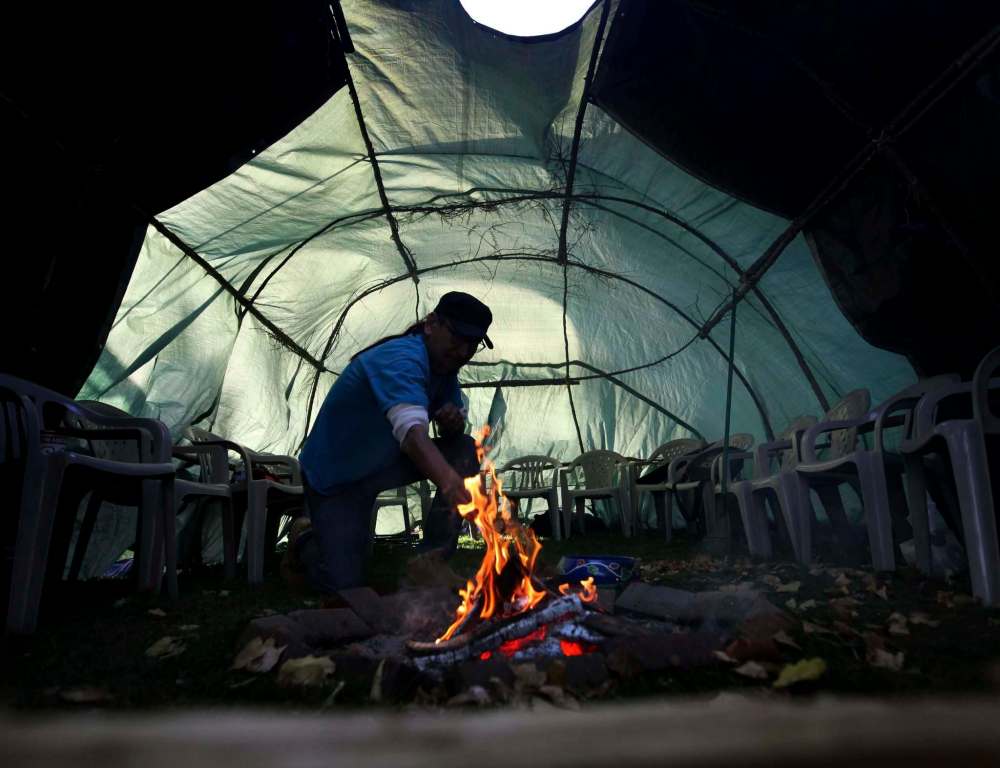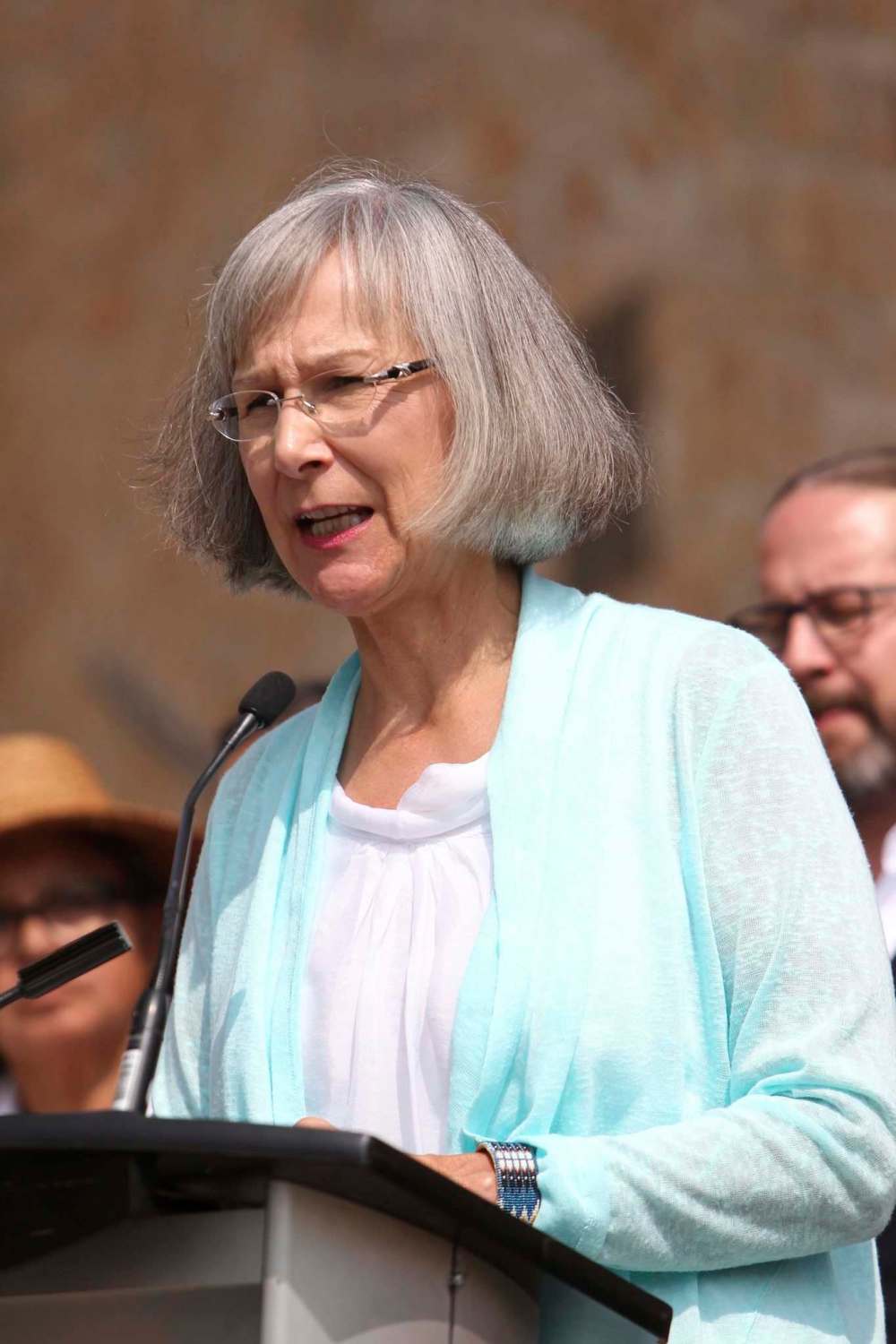Investigation a ‘tall order’: commissioner
Families encouraged to balance expectations against hard realities
Advertisement
Read this article for free:
or
Already have an account? Log in here »
To continue reading, please subscribe:
Monthly Digital Subscription
$19 $0 for the first 4 weeks*
- Enjoy unlimited reading on winnipegfreepress.com
- Read the E-Edition, our digital replica newspaper
- Access News Break, our award-winning app
- Play interactive puzzles
*No charge for 4 weeks then billed as $19 every four weeks (new subscribers and qualified returning subscribers only). Cancel anytime.
Read unlimited articles for free today:
or
Already have an account? Log in here »
Hey there, time traveller!
This article was published 17/10/2017 (2376 days ago), so information in it may no longer be current.

The National Inquiry into Missing and Murdered Indigenous Women and Girls is just weeks away from filing its first report to Ottawa — and the weight of family expectations must be balanced against hard realities, the inquiry’s lead commissioner cautioned.

“I’d like to be able to fix everything, but that’s a pretty tall order,” Marion Buller said after her arrival Wednesday in Winnipeg, midway through the week-long hearings at the downtown Radisson hotel.
More than 75 families of the missing and murdered are registered to tell their stories this week, and more were being added daily. Some hearings Wednesday afternoon were formatted as a private sharing circles to accommodate a number of families.
In testimony this week, relatives have stressed the fate of their loved ones is entangled with deep divisions in Canadian society related to the country’s history of assimilation policies. They have called for systemic changes in policing, media and the justice system, to ease the burden of discrimination they see embedded in the country’s public institutions,
The social phenomenon behind the hundreds of Indigenous women and girls who have gone missing or been murdered in Canada is part of the commission’s work, but it can’t be fixed by a single inquiry, even if it is a national one, Buller said.
However, she said she and the three other commissioners are listening and they are taking the expectations into account, including criticisms families have levelled against the commission over the shape of the inquiry’s process.
“The best way we can meet families’ expectations is to do our work in an honest, careful and thoughtful way,” Buller said. “That we’re thorough, that we make time for families to tell their stories and that we do our research the way we’re supposed to.”
On Wednesday morning, the inquiry heard from a woman about the murder of her parents in a 1993 home invasion in St. Eustache, some 50 kilometres west of Winnipeg. Trapped in the house with her brother, Falon Farinacci was a child of nine the night Andre Ducharme killed her parents before turning the gun on himself.
The murders of Sherry and Maurice Paul, a proud Métis family, were among the stalking crimes that paved the way for Canada’s anti-stalking laws.
It also took a heavy personal toll, leaving Farinacci and her two brothers orphans. “I lost a part of me, where to go, who I’m supposed to be,” she said.
Few stories this week have fit the stereotype of addicts or sex workers as victims.
“What we’re taking away from the stories… is that the violence that Indigenous women and girls experience across Canada is pervasive. It takes more than one form. And it’s ongoing, unfortunately,” Buller said.
By week’s end, women such as Sue Caribou, a staunch advocate for justice for the missing and murdered, will have also told her story about losing multiple relatives. Caribou said she’ll also uncover a new layer, with her own story of domestic abuse, that unfolded at the time she was advocating publicly for police to search for her niece’s remains.
Tanya Nepinak, 31, vanished in 2011, after leaving her Winnipeg home to walk to a pizza place a few blocks away. She was never found, despite a police search of the Brady Road landfill Caribou and other relatives prevailed on authorities to conduct.
By the time the dust settled in her personal life, Caribou said she’d lost her home, a cottage property in Lac du Bonnet purchased with her residential schools settlement.
The commission will meet its deadline for its interim report, said Buller. It will include initial recommendations, but no family testimony.
“I think Canadians will be very pleased with the interim report… It will be an update of what’s we’ve accomplished to date (and) a review of the research that’s already been done, which we are required to do (under) our terms of reference,” she said.
alexandra.paul@freepress.mb.ca


